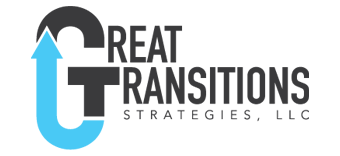Below is a collection of the questions we are most frequently asked. Click on the question, or the plus sign to view the answers.
What is Coaching?
The International Coach Federation (ICF) defines coaching as partnering with clients in a thought-provoking and creative process that inspires them to maximize their personal and professional potential, which is particularly important in today’s uncertain and complex environment. Coaches honor the client as the expert in his or her life and work and believe every client is creative, resourceful and whole. Standing on this foundation, the coach’s responsibility is to:
- Discover, clarify, and align with what the client wants to achieve
- Encourage client self-discovery
- Elicit client-generated solutions and strategies
- Hold the client responsible and accountable
This process helps clients dramatically improve their outlook on work and life, while improving their leadership skills and unlocking their potential.
What does your coaching process look like?
The coaching engagement is built around the goals of the client. However, the general process is to start by having the client establish the ideal vision they have for themselves in the area they want coaching. That may be leadership, a career transition, or a specific event such as an interview. Once the vision is established the client explores their values, strengths and and what is needed to realize their vision. Once that foundation is laid the coach works to assist the client in setting priorities for taking action to achieve their goals. Follow-on sessions focus on evaluating the actions, progress, and increasing the learning of the client. The coach may provide additional resources, assessments, or other tools to assist the client in their journey.
What are the areas you have consulting expertise?
Great Transitions Strategies has consulting expertise in the areas of Leadership Development, and Leadership and Ethics Training and Education. Typical engagements are:
- Leadership education and training for individuals, teams, or groups
- Assisting organization develop education and training programs
- Assisting organizations integrate leadership and ethics into the current programs
- Deliver workshops to meet training and education requirements
How is coaching different from other professions such as counseling?
This answer is from the International Coach Federation Web site:
Professional coaching focuses on setting goals, creating outcomes and managing personal change. Sometimes it’s helpful to understand coaching by distinguishing it from other personal or organizational support professions.
- Therapy: Therapy deals with healing pain, dysfunction and conflict within an individual or in relationships. The focus is often on resolving difficulties arising from the past that hamper an individual’s emotional functioning in the present, improving overall psychological functioning, and dealing with the present in more emotionally healthy ways. Coaching, on the other hand, supports personal and professional growth based on self-initiated change in pursuit of specific actionable outcomes. These outcomes are linked to personal or professional success. Coaching is future focused. While positive feelings/emotions may be a natural outcome of coaching, the primary focus is on creating actionable strategies for achieving specific goals in one’s work or personal life. The emphases in a coaching relationship are on action, accountability, and follow through.
- Consulting: Individuals or organizations retain consultants for their expertise. While consulting approaches vary widely, the assumption is the consultant will diagnose problems and prescribe and, sometimes, implement solutions. With coaching, the assumption is that individuals or teams are capable of generating their own solutions, with the coach supplying supportive, discovery-based approaches and frameworks.
- Mentoring: A mentor is an expert who provides wisdom and guidance based on his or her own experience. Mentoring may include advising, counseling and coaching. The coaching process does not include advising or counseling, and focuses instead on individuals or groups setting and reaching their own objectives.
- Training: Training programs are based on objectives set out by the trainer or instructor. Though objectives are clarified in the coaching process, they are set by the individual or team being coached, with guidance provided by the coach. Training also assumes a linear learning path that coincides with an established curriculum. Coaching is less linear without a set curriculum.
- Athletic Development: Though sports metaphors are often used, professional coaching is different from sports coaching. The athletic coach is often seen as an expert who guides and directs the behavior of individuals or teams based on his or her greater experience and knowledge. Professional coaches possess these qualities, but their experience and knowledge of the individual or team determines the direction. Additionally, professional coaching, unlike athletic development, does not focus on behaviors that are being executed poorly or incorrectly. Instead, the focus is on identifying opportunity for development based on individual strengths and capabilities.
What are some reasons teams seek coaching?
Team coaching is for any team generally from 5- 16 people in number that wants to improve their overall performance. Some typical reasons:
- There has been a reorganization and a number of new team members
- New leader joins the team
- The team wants to improve its performance around a particular issue such as: communication, production, or teamwork
- The team wants to take a proactive approach to establishing their team culture
- Setting vision, mission, and values for the the team
How do I get started?
That’s easy. Just use the “Contact Us” form and arrange a time to talk and discuss your goals for coaching and set up a sample coaching session.
What are reasons for coaching?
An individual or team may to choose to work with a coach for a multitude of reason. In most cases it is to improve some area of their life or performance. Some examples:
- To improve leadership skills
- Get started off on the right path after a promotion
- Skill improvement to be more competitive for a promotion.
- To fill a gaps in skills or knowledge
- To improve their performance
- Assist in decision-making with a career change
- Assist in the transition to a new area or job
How long does a coaching relationship last?
That depends. The length of time varies depending on the individual’s or team’s goals and desires. For some types of coaching three -six months and for others longer. For a typical leadership or transition one-on-one coaching partnership the recommended time frame is six months.
How is coaching accomplished, do we need to be face-to-face?
Most often coaching sessions are accomplished over the telephone. However, when able coaching can be face-to-face or use other technology such as Skype. A typical session is scheduled for 30 – 60 mins every 2-4 weeks, based the needs and desires of the client.
What do you mean by integrating leadership and ethics into existing training?
Many organizations have established training programs for the technical skills or procedures required for specific positions. Integrating training means that leadership and ethics will be included as part of the skills and procedures training. That way leadership and ethics is taught just as it will be experienced day-to-day in the performance daily tasks. It is much more effective than training for leadership and ethics as a separate entity.
I am transitioning from the military, how can coaching benefit me?
When you are coached by me I will assist you in determining a long term vision for yourself, based on your values and purpose in life. This will allow you to make a well informed decision on your transition.



